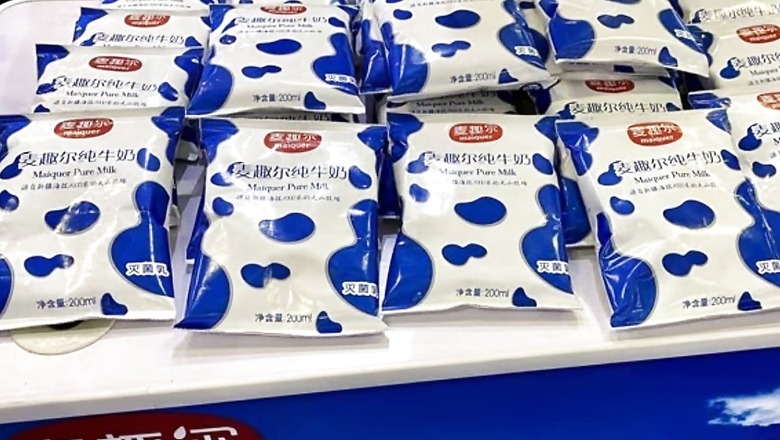
views
India has strict regulations to ensure food safety and protect public health. While many foods are enjoyed and celebrated across the country, some products have been banned by the Food Safety and Standards Association of India (FSSAI) for various reasons including health concerns, environmental impacts and cultural sensitivities. Below is a list of 7 foods banned in India, along with the reasons behind their ban and the consequences for consumers.
Chinese Milk and Milk Products
Chinese milk and milk products, including infant formula, have been banned in India by the FSSAI since 2008 following several food scandals and contamination issues in China. Contaminants such as melamine, a toxic chemical used to artificially increase protein content, have been found in Chinese dairy products, posing a serious health risk to consumers.
Genetically Modified (GM) Food
India has imposed restrictions on the cultivation and import of genetically modified crops and foods, citing concerns about environmental impact, biodiversity loss and potential health risks. While GM crops such as Bt cotton are approved for commercial cultivation, the approval process for GM foods remains stringent.
Potassium Bromate
In 2016, the FSSAI banned the use of potassium bromate, a food additive used to improve dough elasticity and bread volume, due to its carcinogenic properties. Studies have linked potassium bromate to an increased risk of cancer, particularly thyroid cancer, prompting regulators to ban its use in bread and baked goods.
Artificial Fruit Ripeners
Chemicals such as calcium carbide and ethylene gas used to artificially ripen fruits have been banned in India due to health concerns and safety risks. Calcium carbide, in particular, releases acetylene gas during the ripening process, a known carcinogen that poses a risk to consumers’ health.
Foie gras
In 2014, foie gras was banned in India due to ethical concerns surrounding the production process, which involves force-feeding ducks or geese to enlarge their livers – a practice considered cruel by animal rights activists. India’s ban on foie gras reflects a commitment to animal rights and the ethical treatment of animals in food production.
Sassafras oil
Sassafras oil was banned by the FSSAI in 2003 due to its high erucic acid content, which poses health risks, including heart disease. The erucic acid content in Sassafras oil exceeded the permissible limits, leading to a ban to protect consumers from possible negative effects on cardiovascular health.
Chinese Garlic
In 2019, the import of Chinese garlic in India was banned by the FSSAI because high levels of pesticide residues were found in imported garlic from China. Pesticide residues exceeding the permissible limits were found in Chinese garlic, posing a serious health risk to consumers.


















Comments
0 comment